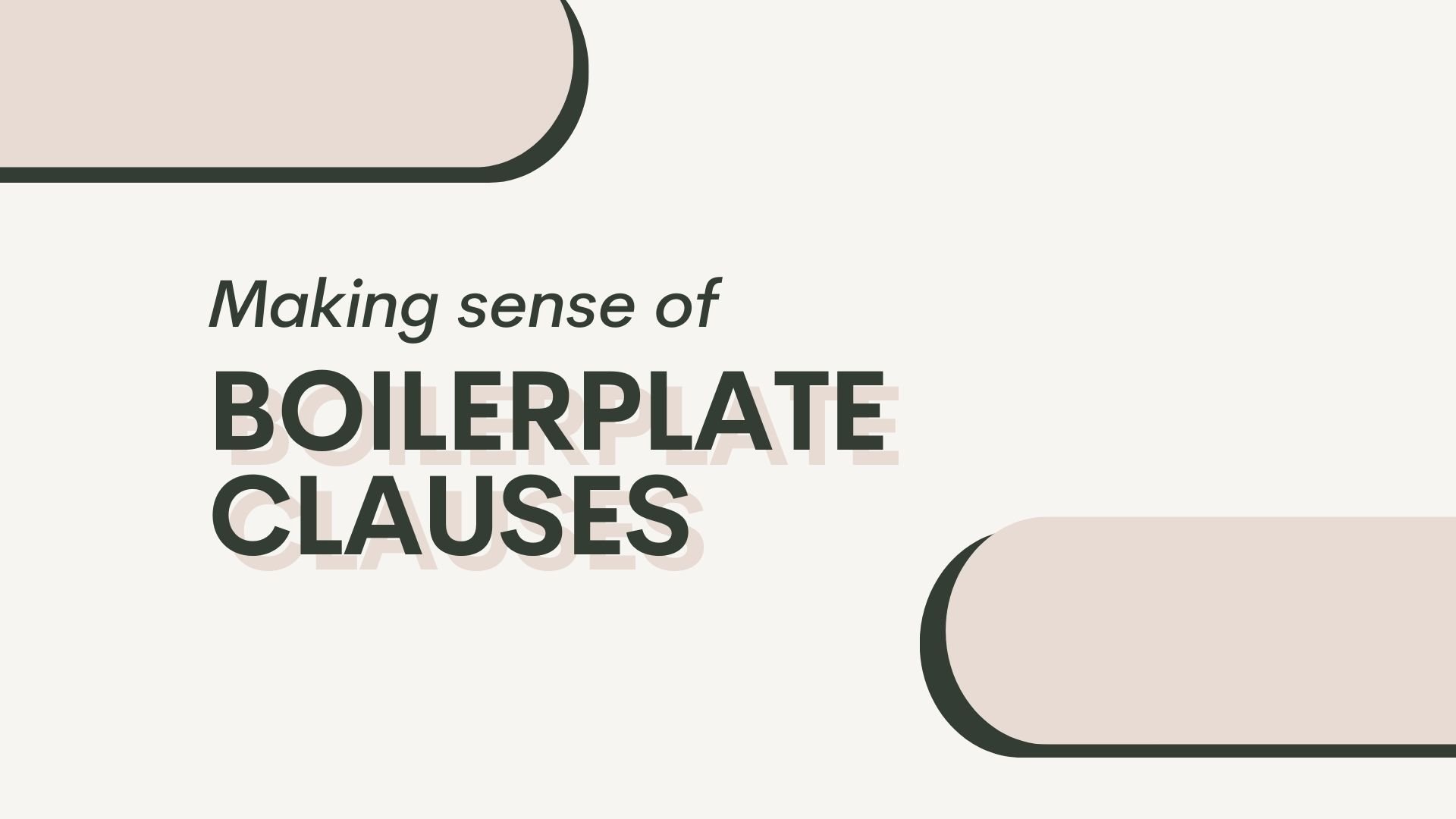Making sense of Boilerplate clauses
Fun fact - historically, a ‘boilerplate’ was a piece of metal that formed the template for the construction of a steam boiler.
Boilerplate clauses within a contract have the same effect. They are the standardised, generic provisions, usually at the start or the end of an agreement. These clauses are hardly ever negotiated, but I’m here to advocate that they should be shown due respect.
Like the piece of metal, they are the backbone of an agreement. So, if these clauses are poorly designed, they can unravel the whole contract.
Here are a few examples of why due attention to boilerplate clauses is important:
Choice of Jurisdiction
Usually the governing law, being the law that applies to the contract, is prioritised when reviewing agreements. But less air time is given to where any claim is enforced. The governing law in the agreement does not mean the courts of that jurisdiction. So, if you do not also stipulate the jurisdiction for any dispute, you may end up in costly litigation in the courts of a land far, far away.
Entire Agreement
If the agreement in question relates to a sales led business, proper consideration of this clause this is crucial when contracting. This term says that whatever isn’t contained in the contract, cannot be relied upon by those contracting. So, any promises made before the contract is signed are out the window, in favour of the negotiated SLA’s and warranties contained in writing in the contract. This may work in your favour…
On the other hand, if you relied on a proposal or verbal representations, you should ensure that the entire agreement clause does not exclude these details.
Assignment
When you draft or review an assignment clause, you should always keep in mind what you want your relationship with the counter-party to look like? This clause determines whether a party can transfer its rights and obligations under the contract to a third party without the other party's consent or may impose conditions in giving such consent. If a party is able to assign their obligations at their will, the arrangement may end up looking very different to what you had originally planned.
Conversely, if your company is considering a future sale or restructure, you need to have the right to assign the agreement to a buyer or related entity without being in breach of this clause, as usually any assignment by a party that breaches this clause would be deemed void.
So, skim through Boilerplates at your peril!
Do you need help with your Boilerplate clauses? Reach out to our commercial team here.

